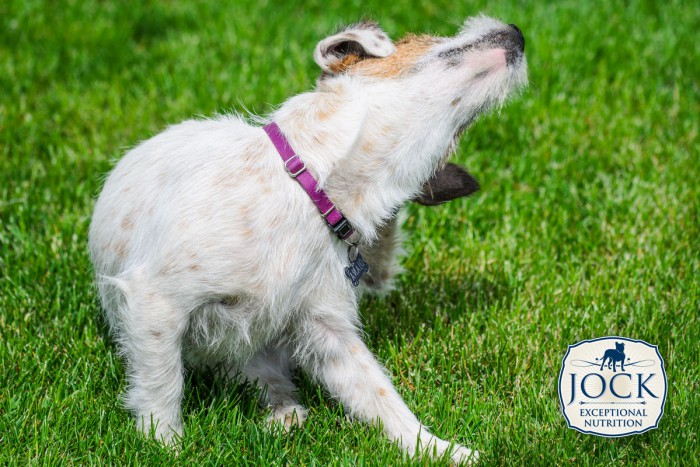Skin irritation in dogs is actually very common. In fact, right after gastrointestinal issues, it’s the most popular reason for vet visits. And while most pooches will walk away with a diagnosis of ticks or fleas, there are a few other conditions that can cause your dog to go scratch-crazy.
The symptoms
A dog scratching itself is not at all uncommon. And while most dogs indulge in a quick scratch to relieve an itch, some go further. Be aware of excessive scratching, licking, biting and chewing on certain areas, especially if this leads to your dog injuring itself or drawing blood.
It also helps to pay attention to which areas your dog is scratching as skin irritations are most common on the back and tail, the legs and paws, and the belly. Also, be on the lookout for skin that is too dry or too oily, or possible skin infections.
The causes
Dry skin is a common cause of skin irritation in dogs and can occur quite frequently in areas with low humidity. Diet can also be to blame for dry skin, especially if your dog is fed dry or processed dog foods. To check for skin dryness, simply part your dog’s hair and look for dandruff, cracking skin or skin thickening.
Another common cause of itchy skin in dogs is allergies. Just like humans, dogs can be hypersensitive to certain things which can result in extreme itchiness or irritation. The most commonly diagnosed trigger for allergies is flea bites. Some other triggers include certain foods, insect bites, contact with soaps or laundry detergents, grass, pollen, and more. Identifying an allergy is not easy and is best done with your vet’s help.
For more on how to identify and rid your dog of fleas and ticks, check out our article on the subject here
The cures
Alleviating dry skin and the associated itchiness can be as simple as adding more good fats to your dog’s diet. JOCK dog food is rich in Omega 3 and 6 fatty acids, which are essential for maintaining a healthy coat and skin. More aggressive treatments for dryness, like ointments and creams, can be obtained from your vet. You can also opt for homemade treatments, including rubbing coconut oil or aloe vera on the affected areas. Be aware that dogs lick themselves quite often, so any treatment you decide on has to be safe for them to ingest.
Allergies, on the other hand, cannot be cured, but they can be managed. Certain medications, like antihistamines and steroids, can help with the itching and skin irritation, and are available from your vet. These will only help keep symptoms under control, as allergies are for life. Medicated shampoos can also help control itching and can even help in the event of a fungal or bacterial skin infection.


